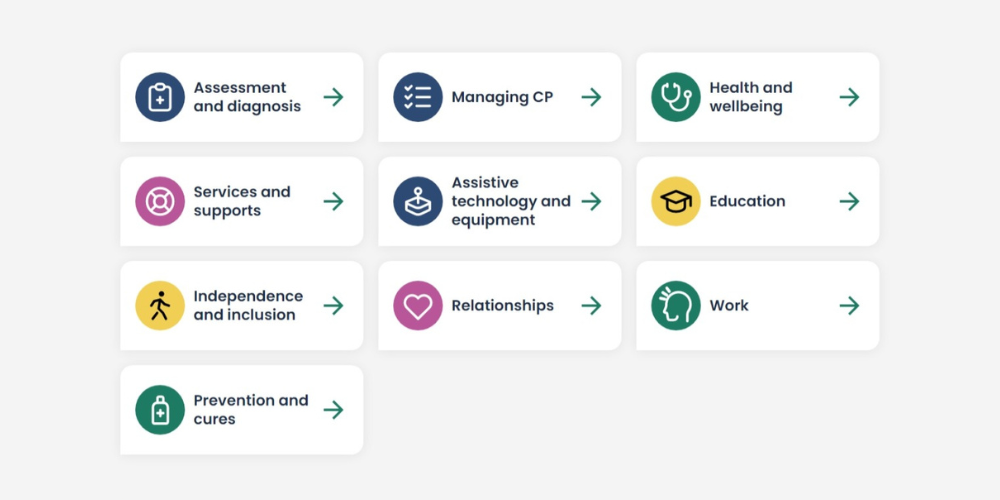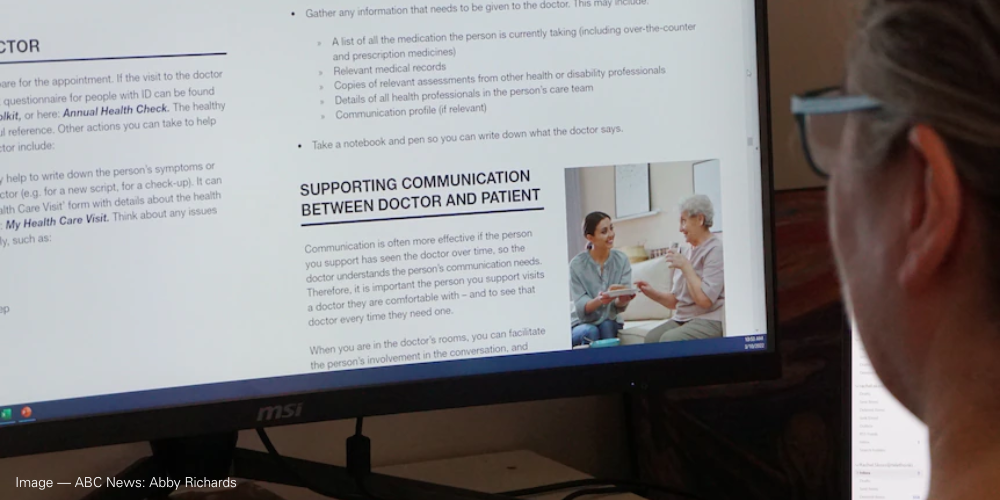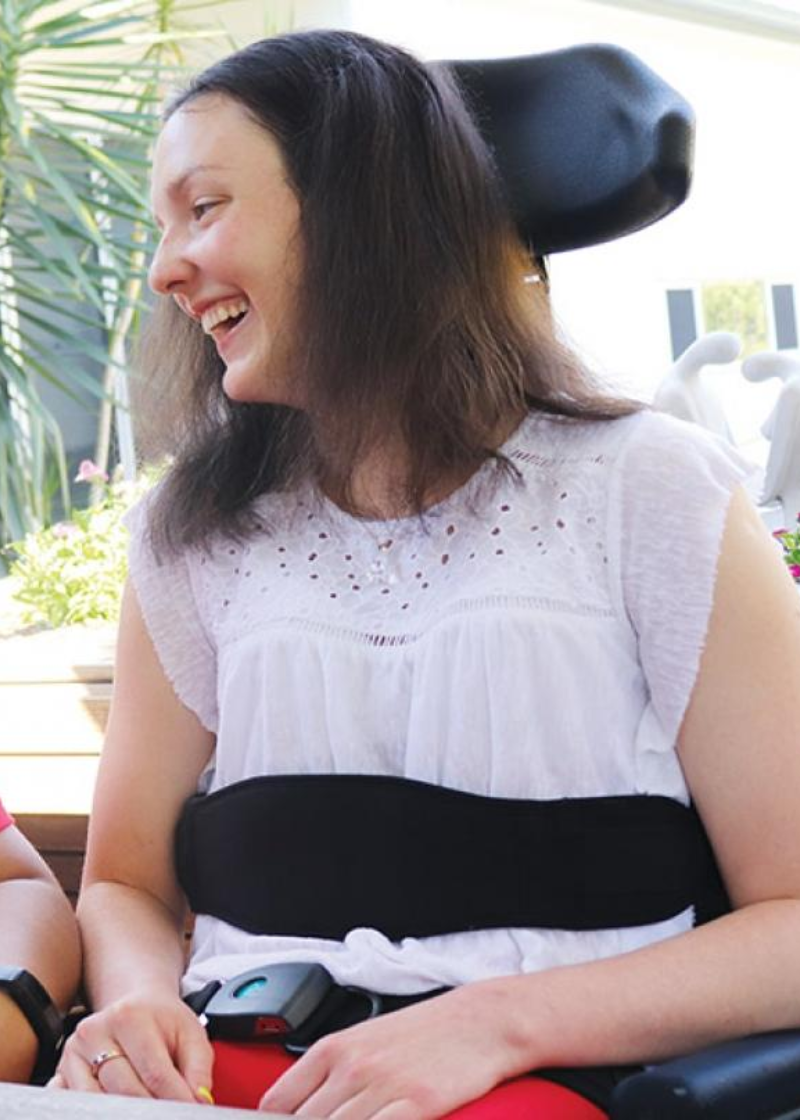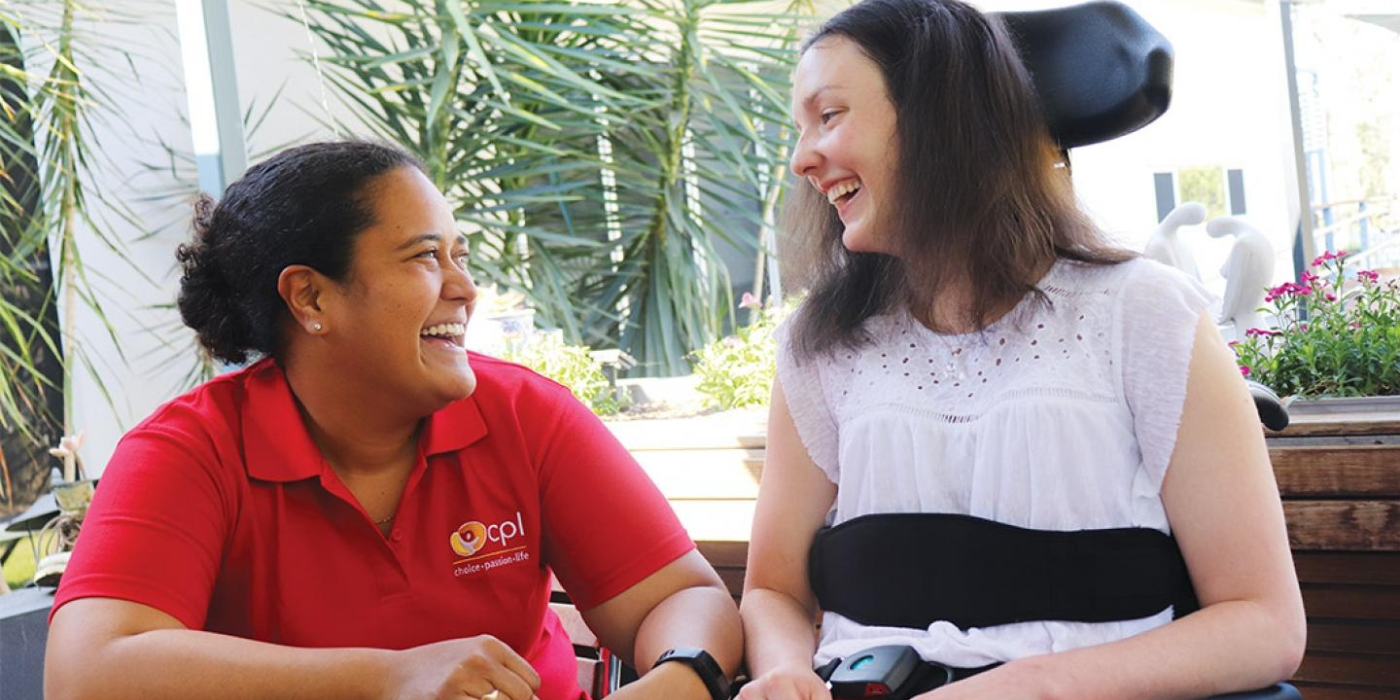It’s often touted as world class, but that doesn’t mean Australia’s health system is always easy to navigate. For people with disability, finding healthcare – or even knowing where to start – can be a daunting and fruitless task.
Such complexities have led to the release of two game-changing guides - My CP Guide: Understanding cerebral palsy across all stages of life by Cerebral Palsy Australia and Health Care: For People Who Need Extra Support by Dr Rachel Skoss, from UNDA’s Institute for Health Research
Cerebral Palsy Australia collect, review and assess existing, credible information from around the world and make it easily available. From assessment/diagnosis to services/supports to relationships and beyond, the guide offers a wealth of information for all areas of life – and most importantly – gives people a place to start their health care journey.

My CP Guide offers comprehensive health information for all life stages, all in the one accessible place
To access the guide, all users need to do is create a profile and register their details at www.mycpguide.com.au. From there they can access the most trustworthy and up to date information, tailored to their specific needs and life stages.
Following a similar tact is Dr Skoss’ guide Health Care: For People Who Need Extra Support – which she penned during Covid lockdowns – following her own experience navigating the health system for her son Andrew, who has Down Syndrome.
The comprehensive guide to health literacy, which was supported by a government health research grant, offers help to support the health of people with a cognitive impairment or intellectual disability.
Dr Skoss said it was a guide to health literacy, supporting the health of people with a cognitive impairment or intellectual disability.
“It covers everything from nutrition and exercise to chronic disease and choosing a doctor,” Dr Skoss said.
“People with an intellectual disability are more likely to suffer from multiple health issues; those issues are often undermanaged, resulting in poor long-term health outcomes.”
Dr Skoss says the guide would have been a great help when her son, Andrew, was younger.
"I know how hard it is to find the right sort of information - it's been a bit of a journey and I have had to learn a lot along the way," Dr Skoss said.
“Caregivers are often family members or support workers who receive little training to help them manage the extremely complex health needs of the person they are caring for,” she said.
“Further complicating matters is the fact that the person receiving care is often not able to clearly communicate how they are feeling or what symptoms they are experiencing.
“That is why it was important to bring together as much practical information as possible into one handy document that is easy to read and also includes additional links to a range of trusted sites promoting best practice healthcare advice from around the world.”

A comprehensive, "one-stop" resource guide for health professionals, carers and families of people with intellectual disability (Image credit: ABC News)
It’s hoped the guide will be a useful resource for disability organisations like CPL Group, who support people living in group homes.
“It will also assist medical practitioners, helping them to better understand the unique needs of their patients and the importance of working with them and their caregivers to achieve the best possible outcomes,” Dr Skoss said.
You can view and download the guide here.

